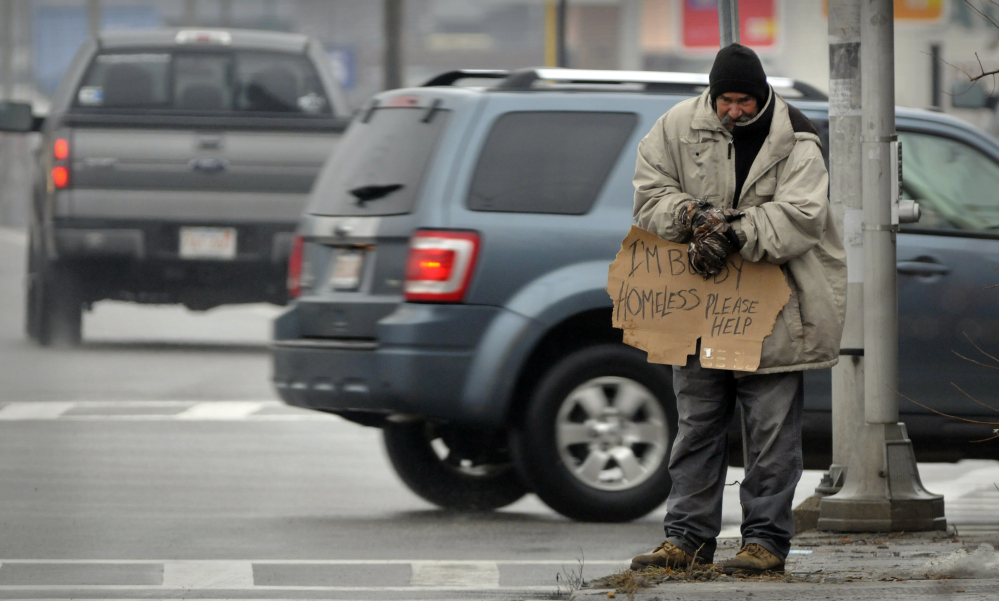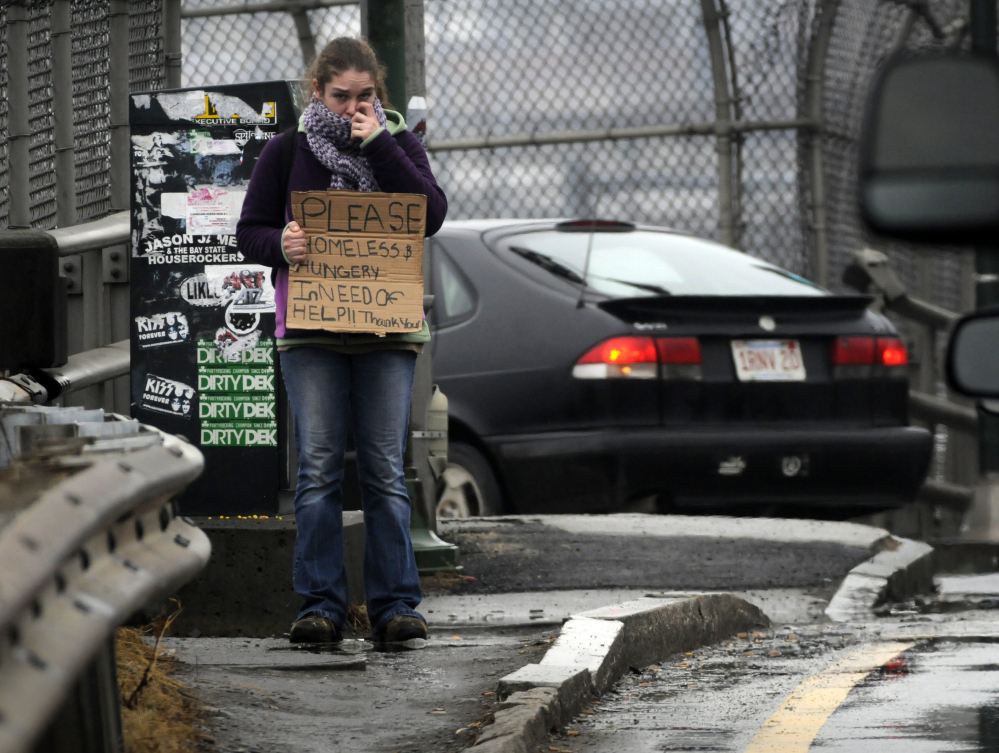WORCESTER, Mass. — Sam Torres can often be seen standing on a quiet street corner a few blocks from the bus station, holding a ragged cardboard sign that reads: “Homeless Please Help.”
Torres says he’d make at least twice his daily take of $10 or $15 – barely enough for coffee and sandwiches – if he could ask for money in a spot with more traffic. But that has been difficult in New England’s second-largest city since a pair of 2013 ordinances strictly limited where panhandling is allowed.
Now the U.S. Supreme Court is poised to decide whether to hear a challenge brought on behalf of homeless like Torres by the American Civil Liberties Union.
Lower courts have upheld the measures, which have drawn praise from residents who say they’re tired of being hit up for cash but criticism from advocates for the homeless.
“It really has had an effect on the homeless and poor people in the city of Worcester,” said attorney Kevin Martin, handling the lawsuit for the ACLU of Massachusetts on behalf of two homeless plaintiffs and a local politician who contends certain campaign activity also is made illegal by the laws.
WHERE IT’S OK TO ASK
One of the ordinances forbids asking for money after dark or at any time within 20 feet of bus stops, restaurants with outdoor seating, ATMs and certain other locations. The second restricts anyone from standing on traffic islands: formerly a popular location to seek handouts, solicit money for charity or hold political signs.
The ACLU argues that the laws, enforced by a $50 fine or community service, exact an unconstitutional burden on free speech.
More recently, the organization has drawn parallels with another Massachusetts law struck down last year by the Supreme Court that had imposed a 35-foot “buffer zone” keeping protesters at a distance from abortion clinics.
Martin said Worcester has effectively laid a buffer zone across the city’s entire downtown – “any place you might encounter someone you could ask for money.”
Some downtown workers see that as a good thing.
“I think it’s made a positive effect,” said Bill Kelly, who has seen fewer panhandlers near his workplace since the laws were passed. “I would hope that it wouldn’t be treated as a free speech issue. It’s more of a public safety issue.”
Kelly echoed the position of Mayor Joseph M. Petty, who said in a statement: “This ordinance is about the safety of our homeless population and keeping them from engaging in solicitation practices that pose a risk to their health and safety.”
Petty added that the city has been working to connect homeless people with services that provide “long-term and sustainable solutions to address homelessness and poverty.”
The Supreme Court could decide by Monday whether to hear the case. If it does, any future ruling potentially could affect similar ordinances in other cities. Boston, for example, requires panhandlers to stay at least 10 feet from banks and ATMs, and Lowell, Massachusetts, bans begging within its downtown historic district.
Worcester police say they made 15 panhandling arrests in 2014.
Torres wasn’t among them. He said he’s been careful to follow the law – but it has also sharply curtailed his only means to get by.
“There’s worse things a person can do to make money,” he said. “Begging is kind of low, but it’s the best I can do. If we’re not harassing people, they should let us be.”
Send questions/comments to the editors.




Success. Please wait for the page to reload. If the page does not reload within 5 seconds, please refresh the page.
Enter your email and password to access comments.
Hi, to comment on stories you must . This profile is in addition to your subscription and website login.
Already have a commenting profile? .
Invalid username/password.
Please check your email to confirm and complete your registration.
Only subscribers are eligible to post comments. Please subscribe or login first for digital access. Here’s why.
Use the form below to reset your password. When you've submitted your account email, we will send an email with a reset code.